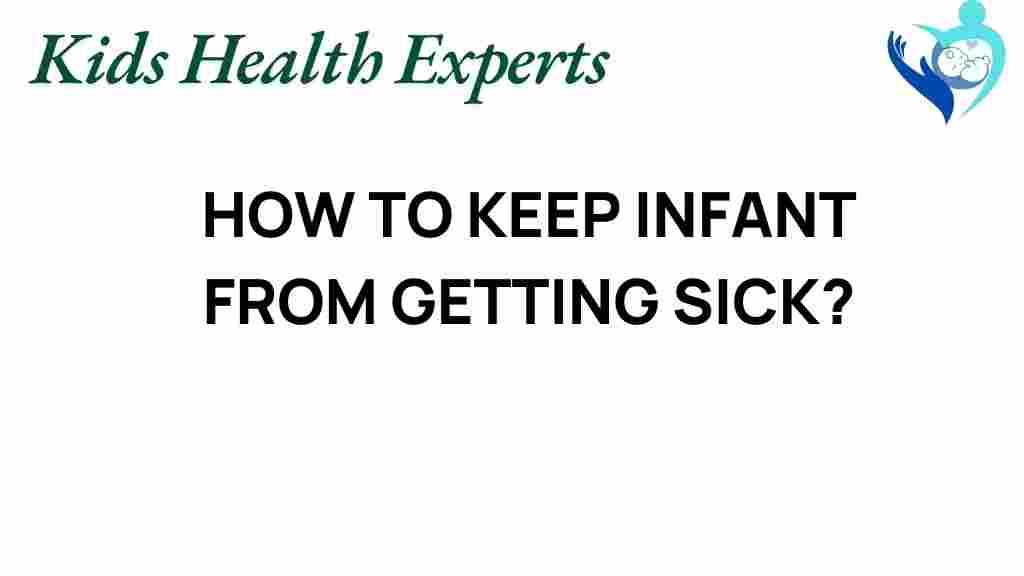Essential Tips to Shield Your Infant from Illness: Focus on Infant Health
As parents, the health of your infant is of paramount importance. Ensuring your baby remains healthy and protected from illness involves a combination of proactive strategies, including proper nutrition, hygiene practices, and regular vaccinations. This article provides essential tips on infant health and illness prevention, offering valuable parenting tips that will help build a strong immune system and promote overall baby care during early childhood.
Understanding Infant Health and Illness Prevention
Infant health is critical in the early stages of life as a baby’s immune system is still developing. Illness prevention starts with understanding how to protect your little one. Here are some foundational aspects:
- Immune System Development: Infants are born with a partially developed immune system. This means they are more susceptible to infections and illnesses.
- Importance of Vaccinations: Vaccinations are crucial for protecting infants against various diseases that can be serious or even life-threatening.
- Role of Nutrition: A well-balanced diet is essential for your baby’s growth and immune system development.
Step-by-Step Tips for Preventing Illness in Infants
Here are some effective strategies to enhance your infant’s health and prevent illness:
1. Prioritize Vaccinations
Vaccinations are one of the best defenses against illness for your infant. Consult with your pediatrician to ensure your baby is up-to-date on all recommended vaccines.
- Schedule Regular Check-Ups: Regular pediatric visits ensure that your baby receives their vaccinations on time.
- Stay Informed: Keep track of the vaccination schedule and understand the benefits of each vaccine.
2. Maintain Hygiene Practices
Good hygiene is essential for preventing infections. Here are key hygiene practices to incorporate:
- Handwashing: Wash your hands frequently, especially before handling your infant, after diaper changes, and before feeding.
- Sanitize Surfaces: Regularly clean and disinfect commonly used surfaces and toys.
- Avoid Sick Individuals: Keep your baby away from people who are ill to minimize exposure to germs.
3. Focus on Nutrition
A nutritious diet plays a vital role in building a strong immune system. Here are some nutrition tips:
- Breastfeeding: If possible, breastfeed your infant for at least the first six months. Breast milk contains essential antibodies that help fight infections.
- Introduce Healthy Foods: As your baby grows, introduce a variety of fruits, vegetables, and whole grains to their diet.
- Stay Hydrated: Ensure your baby is getting enough fluids, especially when transitioning to solid foods.
4. Encourage Healthy Sleep Habits
Sleep is crucial for your infant’s health. A well-rested baby has a stronger immune system. Consider the following:
- Establish a Sleep Routine: Create a consistent bedtime routine to help your baby settle down for the night.
- Provide a Safe Sleeping Environment: Ensure your baby sleeps on their back in a safe crib to reduce the risk of SIDS (Sudden Infant Death Syndrome).
5. Create a Stimulating Environment
Providing a stimulating environment can enhance your infant’s development and overall health.
- Engage in Play: Spend time playing with your baby to promote cognitive and physical development.
- Limit Screen Time: Avoid exposing your infant to screens, as they can hinder development and affect sleep patterns.
Troubleshooting Common Concerns
As a parent, you may encounter various concerns regarding your infant’s health. Here are some common issues and how to address them:
1. Cold and Cough
It’s common for infants to catch colds. If your baby develops a cough or cold:
- Consult Your Pediatrician: Always seek advice from your healthcare provider if you’re concerned about your baby’s symptoms.
- Keep Them Comfortable: Use a humidifier in their room and ensure they stay hydrated.
2. Fever
A fever can be concerning for parents. If your infant has a fever:
- Monitor Their Temperature: Use a digital thermometer to check their temperature regularly.
- Seek Medical Attention: Contact your pediatrician if your infant is under three months old and has a fever.
3. Digestive Issues
If your baby experiences constipation or gas:
- Adjust Their Diet: If your baby is eating solids, ensure they are getting enough fiber from fruits and vegetables.
- Consult with a Pediatrician: If issues persist, seek advice from your healthcare provider.
Conclusion
Shielding your infant from illness requires a holistic approach that includes proper nutrition, hygiene practices, timely vaccinations, and a nurturing environment. By following these essential tips on infant health and illness prevention, you can help your baby develop a robust immune system and enjoy a healthy early childhood.
Remember, parenting is a journey filled with learning opportunities. Stay informed and proactive about your baby’s health. For more information on baby care, you can visit this resource. Stay connected and keep sharing your experiences with fellow parents!
By implementing these strategies, you empower yourself to give your infant the healthiest start in life. Your commitment to their well-being will pay off as they grow stronger and healthier.
This article is in the category Care and created by KidsHealthExperts Team
